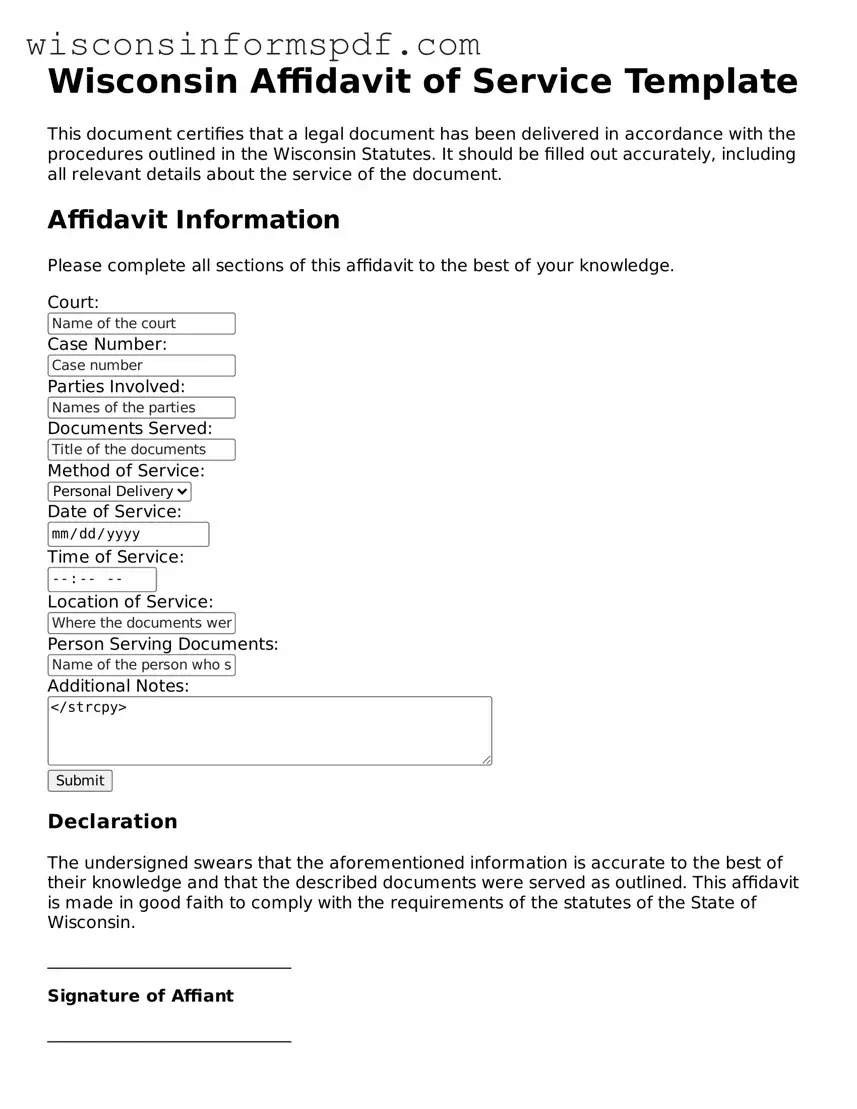What is an Affidavit of Service form in Wisconsin?
An Affididavit of Service form in Wisconsin is a legal document used to verify that a legal document has been properly delivered to a person involved in a legal proceeding. This form acts as proof that the person received the documents, ensuring that the process follows legal requirements.
When is the Affidavit of Service form needed?
This form is needed after you have served legal documents on another party as part of a lawsuit or legal process. It is used to inform the court that the documents have been delivered in accordance with law, fulfilling the requirement of notifying the other party about the legal action.
Who can serve documents in Wisconsin?
In Wisconsin, legal documents must be served by an individual who is not a party to the case and is at least 18 years old. Often, a professional process server, sheriff's deputy, or law enforcement officer fulfills this role.
How can documents be served in Wisconsin?
Documents can be served in several ways, including personal delivery to the individual, leaving the documents at the individual's residence with someone of suitable age and discretion, or through certified mail, depending on the requirements of the case and the court's rules.
What information must be included in the Affidavit of Service?
The Affidavit of Service must include the date, time, and location where the documents were served, the manner of service, the name of the person to whom the documents were delivered, and the signature of the person who served the documents, often notarized to verify its authenticity.
How do you file an Affidavit of Service with the court?
After completing the Affidavit of Service, you must file it with the court clerk where your case is being heard. This can usually be done in person, by mail, or electronically, depending on the court's filing system. It is crucial to file this affidavit promptly to avoid delays in your case.
What happens if an Affidavit of Service is not filed?
If an Affidavit of Service is not filed, it may result in delays in the legal process. The court may not be able to proceed with the case until proof of service is provided, as it ensures that all parties are aware of the legal action and have been given an opportunity to respond.
Can the Affidavit of Service be challenged?
Yes, the Affidavit of Service can be challenged if the party being served believes that the service did not occur as documented or did not meet legal standards. In such cases, the court may require additional evidence or testimony regarding the service.
Where can I find a Wisconsin Affidavit of Service form?
The Wisconsin Affidavit of Service form is typically available from the court clerk's office where your case is being handled. It may also be found online through legal resources or the official website of the Wisconsin court system.

